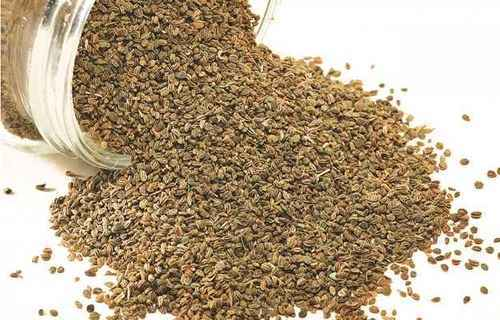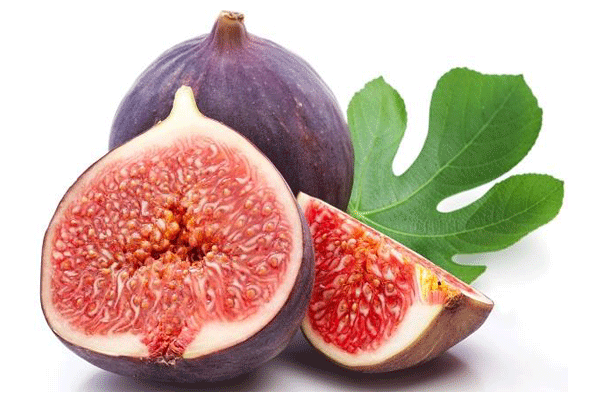Hormonal imbalance is widespread among women. Hormonal imbalance can be caused by changes in estrogen, thyroid, or cortisol levels. Hormones play a significant role in regulating the balance of our metabolism and the function of our immune system. Hormonal imbalance affects many of the body’s processes, including mood, memory, weight management, metabolism, and fertility.
As the levels of estrogen and progesterone change, so does one’s menstrual cycle and fertility status. A hormonal imbalance can vary from mild to extreme. Mild cases may include mood swings, irritability, insomnia, fatigue, lowered libido, changes in appetite, weight gain, or loss. A person may experience irregular periods, bleeding between periods, pain during sex, infertility problems, and even depression in more severe cases.
What Are Hormones?
The human body has a complex network of glands and organs that produce the hormones necessary to function. These glands release their hormones into the bloodstream through tiny, delicate tubes. Some hormones are built to control certain functions within the body, while others are created to regulate other hormones. The production of these hormones begins with the hypothalamus, which sends messages back and forth from the brain to regulate sexuality, blood pressure, moods, and many other functions.
Hypothalamus: The Hypothalamus is the control gland for all of our hormones. It begins by stimulating and controlling other glands like the Pituitary, Thyroid, Adrenal Glands, and Pineal Gland. This gland has a long list of functions ranging from generating sleep patterns to regulating body temperature.
Pancreas: The pancreas is the organ in the body that controls insulin secretion. Insulin, with its effects on blood sugar, is an essential hormone for women’s health. When your pancreas is under-or overactive, it can cause high or low blood sugar levels, detrimental to your health.
Ovaries: The ovaries are the female sex glands. They secrete estrogen, progesterone, and testosterone. Estrogen is a hormone that regulates female secondary sex characteristics such as breasts, hips, and body shape.
Symptoms of a Hormone Imbalance
The symptoms of a hormone imbalance are varied, which is why it’s essential to find out whether or not your hormones trigger your symptoms.
Insomnia: Low progesterone levels may be behind your sleep problems. In women, low progesterone levels can lead to trouble sleeping throughout the night and morning fatigue, which is often mistaken for lack of energy. In men, low progesterone levels can cause insomnia or wake up too early from dream sleep.
Digestive Issues: When estrogen and progesterone levels are high, they can cause digestive problems, including bloating, gas, cramps, diarrhea, constipation, and other symptoms. This may be due to the effect these hormones have on the gut. Thyroid hormone may also play a part since there is a connection between thyroid health and how well your body processes estrogen.
Mood Swings: Men who have trouble controlling mood swings may be suffering from low testosterone levels. Low testosterone is a necessary hormone that helps regulate the level of other hormones in a man’s body. Research has shown that low testosterone can lead to depression and anxiety, especially in men with a history of substance abuse, traumatic brain injury, or other factors that have been linked to lower levels of this hormone.
Headaches & Migraines: Migraines and headaches during your periods or menopause can signify a hormonal imbalance. Research has shown that the hormone progesterone plays a role in headaches and migraines. Try eating some foods rich in progesterone and avoiding caffeine, alcohol, and specific other dietary components to prevent this from happening.
Breast Changes: Many different factors can lead to breast changes. Estrogen is the hormone primarily responsible for breast development, and so, if your estrogen levels are high, you might experience more of these changes. One type of change can be an increase in tumor growth. Estrogen dominance, overproduction, or unbalanced progesterone levels can lead to these kinds of changes. Hormonal imbalances or diabetes can also lead to these types of changes.
Home remedies for hormonal imbalance
Change in the diet: Diet is one of the most effective ways to manage and treat hormonal imbalance, where it is used as part of a holistic approach. The diet can help shed weight, regulate blood pressure, reduce inflammation levels, manage blood sugar levels, and keep cholesterol levels in check. It takes some planning and effort, but you can start this journey with the right food choices.
Drink plenty of water: One should drink plenty of water every day because it is a very major remedy to follow by every person. Drinking plenty of water keeps the body from dehydration. It increases the metabolism process and helps to flush out the toxins in the body.
Drinking plenty of water is a very major remedy to follow by every person. It keeps the body from dehydration and increases the metabolism process. It helps flush out toxins in the body, which can help with acne, weight loss, and many other health issues.
Avoid processed food: Processed foods are the leading cause of the global obesity problem, affecting people across all spectrums. One great example is refined carbohydrates like white bread, pasta, and rice. The best thing that you can do to avoid processed food is to buy real food instead. Buy fruits, vegetables, whole grains, and nuts in bulk, so you can use them in recipes for everything from breakfast to dessert.
We all like to indulge in junk food now and then, but knowing the risks of overdoing this is essential. Excess weight can lead to many health problems, which can even be fatal. That’s why it’s best to avoid processed foods as they are rich in calories, and you can quickly gain weight with these foods.
Omega 3 Fatty Acids: Omega 3 fatty acids are essential for the production of hormones. They also help reduce menstrual pain and menopausal symptoms. Without omega-three fatty acids, a woman’s mood may suffer, her sleep may be disrupted, and she may gain weight.
Omega 3 fatty acids are considered one of the significant nutrients that can improve health. Research has shown that this nutrient helps create healthy and responsive cell membranes, which causes a better adherence to hormones. It also makes sure that cellular receptor sites are working and are repaired.
Omega 3 fatty acid is a nutrient shown to improve mood, lower inflammation, and reduce cancer risk. The deficiency in omega-three fatty acids is associated with the reduced production of sex hormones, leading to many physical and mental health problems.
Avocados: Avocados are rich sources of healthy monounsaturated fats, fibre, potassium, magnesium, vitamin E, B vitamins, and folic acid. Some nutritional experts recommend an avocado a day for maintaining hormonal balance.
Carrots: Carrots have a significant amount of fibre. On average, a medium-sized carrot has about 10 grams of fibre. Carrots contain a compound called Beta-Sitosterol, which works to help balance hormone levels in both genders by catching excess estrogen and flushing it from the body.
One of the essential health benefits of eating carrots is the fibre they provide. Carrots are high in phytonutrients, which fight inflammation and reduce symptoms of asthma symptoms. In addition, the fibre from carrots slows down the absorption of estrogen into the body. This is important because too much estrogen can lead to all kinds of hormonal disruptions.
Fruits and Vegetables: The benefits of fruits and vegetables are immense. They help regulate hormones, clean up the internal systems, and can help fight diseases like cancer. As a result, I recommend adding more fruits and vegetables to your daily diet.
Vitamin D: Vitamin D affects our pituitary gland, which produces a variety of hormones. It is essential to be aware of how it can help with problems associated with reduced estrogen levels.
Vitamin D deficiency can lead to an abnormal secretion from the parathyroid gland, which may affect your weight and appetite. Lack of this vitamin also leads to calcium not being absorbed properly, vitamin A deficiencies, mood disturbances, even depression.
Vitamin D is a fat-soluble vitamin that is crucial for the proper function of the body. It helps with bone growth, muscle repair, immune system regulation, and more. The easiest way to have enough vitamin D in your diet is by getting out for a walk or spending some time on the beach.
Exercise: Exercise helps to regulate the hormones of the body. It lowers cortisol levels and increases growth hormone levels, which are significant factors in preventing overweight and obesity. Regular exercise can also help to lower blood pressure, cholesterol and reduce or prevent symptoms related to diabetes mellitus.
I have personally found that staying active outside of work has added some serious life to my day! When you exercise, the levels of the stress-causing hormone cortisol are decreased. This is helpful as the hormonal imbalance can cause mood swings. Besides, exercising releases endorphins which make you feel good all day long.
Coconut Oil: Coconut oil is an all-natural food found in almost every home; it offers many benefits. Coconut oil can be used as cooking oil, body butter, hair conditioner, and even for various diseases. The richness of this oil has been proven to balance hormones.
Coconut oil is the most popular oil globally, which is why it’s so easy to find. It has many health benefits that are only one of their weight loss. Doctors recommend coconut oil because it can improve heart health, reduce inflammation, and protect against diabetes. Coconut oil also boosts your metabolism, controls blood sugar levels, improves immunity, balances energy levels, reduces risks of cancer, manages cholesterol levels, improves brain function, and slows down the aging process.
Coconut oil is one of the most common oils used for cooking and has many benefits proven by scientific studies. The oil has a high smoking point, which means it can cook at a very high temperature without burning, and coconut oil is safe to eat because it does not contain any trans-fatty acids.
Fenugreek seeds: Fenugreek seeds are a natural dietary supplement that is used for a variety of health benefits. They contain diosgenin, a phytoestrogen compound that can synthesize the hormone estrogen in the body. Some common uses for fenugreek seeds include controlling your appetite, enhancing your metabolism, and increasing your sex drive.
Fenugreek seeds have been used for years as a natural hormone replacement therapy for menopausal women. The seeds contain the phytoestrogens called daidzein and formononetin, which help maintain estrogen levels in post-menopausal women.
Fenugreek seeds have a very high concentration of the natural insecticide trigonelline, used as a pesticide in several countries. This drink is good for you! Fenugreek seeds also have a lot of fibre and vitamins. They are used as a preventative for diabetes, heart problems, and cancer.
Magnesium: Magnesium is a powerful supplement for hormones and mood balance. It prevents excessive cortisol and insulin, which contribute to poor sleep, weight gain, fatigue, loss of libido, depression, anxiety, hair loss, memory problems, etc. Magnesium is vital in the manufacture of steroid hormones such as progesterone, estrogen, and testosterone. It is also essential for thyroid production.
Magnesium is an essential mineral that can help prevent and control serious diseases like hypertension, cardiovascular disease, and diabetes. Magnesium oil is used topically as the skin than when ingested, and better absorbs the mineral. It can also be used to relieve sore muscles and cramps and treat irritable bowel syndrome.
Egg Yolks: Egg yolk is rich in nutrients like vitamin A and D. Vitamin D works as a natural steroid hormone in our body, which helps the body absorb calcium. Additionally, many foods rich in vitamin A are classified as carotenoids that help to protect cells from damage.
Egg yolks are an easy way to provide your body with selenium, a nutrient that converts thyroid hormones from the inactive state to the active form. This helps maintain healthy hormone levels and boost metabolism.
Gelatin: Gelatin is a type of protein that is derived from collagen, a not-so-common animal tissue. It’s made up mostly of water and has a consistency similar to jello. It’s a popular choice for people with digestive issues because it helps balance hormones and reduces stress due to magnesium, calcium, and phosphate.
Gelatin is a form of connective tissue that is made up of hundreds of amino acids. It is found in both muscle and bone, where it acts as a scaffold to support the connective tissue. Gelatin is also an excellent source of chondroitin sulfate, which helps prevent age-related damage to the cartilage.
Herbal Remedies to Cure Hormonal Imbalance
Basil: Basil is an herb that is extracted from the leaves of the plant called Ocimum tenuiflorum. This herb has potent anti-inflammatory and immune-boosting properties. It also possesses significant antioxidant properties that help the body fight off free radicals that cause oxidative damage to cells. Additionally, it works as an effective medicine to cure pain, fever and calm your mind.
Basil is a popular herb that can help regulate blood glucose levels and lower cortisol levels, which is beneficial because a high level of cortisol can affect the ovaries and other reproductive organs. This herb has been used for centuries and is widely available.
Basil is a superfood with plenty of health benefits. The leaves are often consumed in tea form and can be boiled in water for 10 minutes and then strained off. This is a great way to cleanse the body and drink it thrice a day to reap the benefits.
Asian Ginseng: Asian Ginseng is a plant with a lot of benefits for men and women. It is a rich source of antioxidants and has been used as a natural remedy for many diseases. In addition to that, Asian ginseng regulates adrenaline that releases hormones related to stress. In addition, Asian ginseng provides relief from menopausal symptoms and increases sperm production also. Asian Ginseng is helpful in the prevention of heart disease, diabetes, cancer, high blood pressure and definitely, improves sexual performance.
Ashwagandha: Ashwagandha is one of the best-known herbal medicines in Indian Ayurveda. It is commonly used as a mood-booster, antidepressant, and for improving sexual health. This herb has been shown to help with many different types of hormone problems such as menopause, thyroid disorders, and even erectile dysfunction/sexual weakness.
Ashwagandha can be used as a dietary supplement to help with many physical and mental health issues, including joint pain, depression, and hair loss. A study conducted by the Indian Council of Medical Research found that Ashwagandha had positive cognitive effects on those who participated in the trials.
Many people are looking for specific solutions to their hormone issues, and Ashwagandha is not only affordable, but it is also the solution. It contains antioxidants, anti-inflammatory properties, anti-infectious properties and helps the body regulate the intake of glucose.
Dong Quai: Dong Quai is a herb that has been used for centuries to treat numerous problems such as menstrual cramps, menopausal symptoms, infertility, ulcers, joint pain. Dong Quai is native to central Asia and China, where it was traditionally used as a tonic for promoting sexual health and fertility. Nowadays, Dong Quai has gained popularity as a natural herbal supplement promoting hormonal balance and antioxidant activity.
Dong Quai is a supplement that many women use to enhance their health and happiness. It is also used in traditional Chinese medicine to help balance the hormones and prevent irregular periods and menopause symptoms. Dong Quai has anti-inflammatory and soothing qualities, so it can be taken when you need relief from chronic stress or anxiety.
Black Cohosh: Black cohosh is a plant with multiple uses. It is used to treat gynecological problems, such as menopause and reproductive issues that may arise. The herb also increases estrogen levels in certain parts of the body, which helps reduce painful cramps and irritability.
Black cohosh was traditionally used in a variety of ways, from pain relief to treating menopause symptoms. In recent years, it has been found that black cohosh can take the place of estrogen in our brain, bone, and vagina. It also helps with the process of menstruation. Black cohosh is composed of glycosides and is ferulic acids that help in the regulation of hormones.
Chaste berry: Chaste berry is a small, green fruit that grows in warmer climates. It is also known as the tree of life because early cultures used it. Chaste berry can help with fertility, maintain ovulation, and protect against estrogen-associated cancers such as breast cancer.
There are two primary components of the berry that are responsible for its medicinal effects. The first is called puerarin which is responsible for stimulating the pituitary gland to produce progesterone. The second is called vitexin, which is responsible for regulating certain hormones in the body to improve specific symptoms, such as menstrual cramps and water retention.
Women on birth control are often advised to take supplements of chaste berry extract to help maintain the average balance of estrogen and progesterone. Chaste berry extract is also used in polycystic ovarian syndrome (PCOS) or diabetes cases, but it does not treat these conditions.
Saw Palmetto: Saw Palmetto is a plant native to the Southern United States and the Caribbean. Its leaves were traditionally used for medicinal purposes, and today they can be found in many health supplements. Saw Palmetto reduces 5-alpha reductase and prevents testosterone from being converted into dihydrotestosterone (DHT). Saw Palmetto is not intended to treat prostate enlargement or prolonged benign prostatic hyperplasia.
Saw Palmetto is a plant that has many beneficial properties. It has been used for centuries to treat ailments like enlarged prostate, urinary tract infections, and lack of libido in men due to low testosterone. Saw Palmetto also helps with hair loss by preventing DHT formation, which leads to oil formation and blockage of pores in the skin.
How do you know if you have a hormone imbalance?
When a hormonal imbalance is present, it can manifest in many ways, like weight gain, mood swings, fatigue, and an irregular menstrual cycle. The best way to figure out if you have one is to test your estrogen levels, progesterone, testosterone, DHEA, cortisol, and thyroid hormones.
The importance of finding the cause of your hormones
The first step of getting rid of your hormonal imbalance is to find out what caused it. It could be stress, poor sleep habits, food choices, or some other factor. Once you have done that, you can start the treatment plan to get your hormones back in balance again.
Conclusion
Hormonal imbalance is a serious topic that affects millions of people across the world. It can cause the body to experience mood changes, weight gain or loss, fatigue, hair loss, skin problems, and more. The solution for people looking to get rid of this problem is eating a diet rich in whole foods, exercising regularly, and avoiding toxins in your life.











